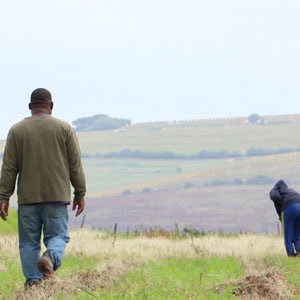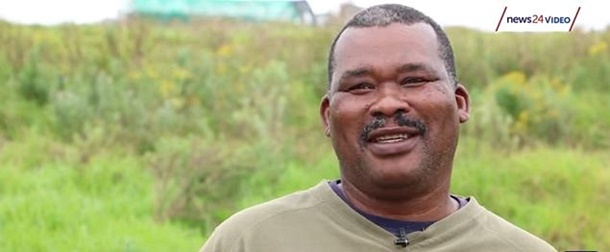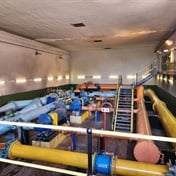
In some senses, Eric Swarts is a lucky man. He is able to get up every morning and do what he loves.
However, that same love is also the source of his struggles.
The 48-year-old Paarl man has been farming on commonage land in Stellenbosch since 2000.
Beyond the myriad of challenges farming presents, many of his problems stem from a lack of ownership.
Swarts is a beneficiary of Spier wine estate's land programme and receives some support in the form of a tractor and a vehicle. Spier also pays for the lease of the land.
Owning the land
However, owing to a lack of resources, he is not able to maintain the land as well as he would like to. He feels that ownership will go a long way towards securing his business.
"If you've got the title deed of the land, at least you'll be able to prove that the land belongs to you and you will have some security in order to obtain funding whether it is the government or private funders," he explains.
Because Eric does not live on the farm it is impossible for him to monitor for porcupines that eat his crops overnight. He says other small-scale farmers lose thousands of rands due to overnight theft.
Eric employs six staff members, but says long-term planning is difficult when you don't own the land because "…usually the agreement is set in such a way that both parties, if they're not happy, they can end it [with] a month's notice and that does not make your operation secure".
The farm is 8.7 hectares, but he is only able to farm a small portion of it due to the water crisis in the Western Cape.
He says Spier is the only surrounding farm providing support.
Lease agreements with municipalities
Legal Resources Centre attorney Wilmien Wicomb explains that commonage land is owned by municipalities. She says the Commonage Policy, adopted in 1997, was supposed to encourage emerging black farmers to enter into lease agreements with municipalities.
"The idea is for emerging farmers to 'graduate' from farming on commonage land (and) to enter into the national land reform programmes, where they should be able to get land in ownership."
But, she says, the municipalities are often reluctant to get involved in land reform, saying it is a national competence.
"…So they often drag their feet on making such land available to emerging farmers and then there are endless problems in getting lease agreements."
After a five-year battle to get a title deed, Swarts succeeded last year. But Wicomb says, while this gives him some security of tenure, there still are no title deeds.
Eric Swarts
She says the problem is by no means unique to Stellenbosch.
"Across the Western, Northern and Southern Cape, emerging farmers are battling for access to commonage land. Once they have access to the land, they battle to get support for water and infrastructure to make it work as the Department of Rural Development is not efficient in providing support for farmers on commonage land."
Swarts says, even those who receive assistance from the government, struggle due to funding or support not always reaching them on time.
"In farming, you have a time frame where you have to do certain things otherwise you lose it," he explains.
Support for land expropriation
He believes land expropriation will help by securing land ownership for farmers like him, but Wicomb says expropriation probably won't be a silver bullet.
"Will expropriation solve it? The commonage land is already state land, but it could conceivably be expropriated by national government from local government.
It is unclear, however, whether the plan is to provide people with title deeds (in fact, the latest government policy called RECAP specifically precluded title deeds from going to land reform beneficiaries except in exceptional circumstances).
It is also not clear how this will solve the problem of farmers getting access to water and infrastructure, even if the land does belong to them.
"The land reform problem is a very complex one, and one-line solutions like ‘expropriation without compensation’ is unlikely to solve the problem."
Swarts dreams of owning his own farm, but acknowledges that it is only the first step.
"It's not about... having the land, you know once you have the land... I say then your problems only start, because the land has to be maintained and in order for the land to be maintained and the crops to be maintained, you need capital for that."




 Publications
Publications
 Partners
Partners


























